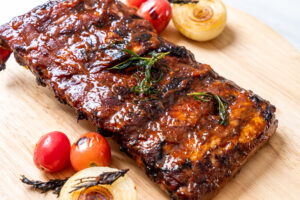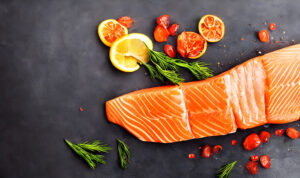
Order your next bottle of Scout & Cellar wine TODAY!
Wine is neither combustible nor flammable due to its high water content and low alcohol content. This makes wine difficult to ignite. Furthermore, unlike fermented Whiskey, alcohol does not burn during the fermentation process of wine. As a result, the chances of fermentative wine catching fire are extremely slim. But does wine catch fire?
A byproduct of fermentation, carbon dioxide is produced, which kills the fire and is utilized as a fire extinguisher. As a result, you’ll be able to enjoy your wine with little concern about catching fire!
WHAT CONSTITUTES A FLAMMABLE LIQUID?
Before we get into wine, it’s vital to understand what makes a liquid combustible in the first place. Flammability refers to how easily things catch fire, with a liquid being deemed flammable if it burns at or below 100°F (38°C).
The temperature at which an alcoholic beverage catches fire is referred to as the liquid’s flashpoint. It’s important to remember that this varies based on the alcoholic content of the drink. Pure ethanol, the alcohol present in alcoholic beverages, has a flashpoint of 55-62°F (13-17°C). However, the flashpoint of wine and most alcoholic beverages is much greater.
WHEN DOES WINE CATCH FIRE?
Wine does not catch fire very quickly in normal circumstances. Because wine includes a lot of water and only a small amount of ethyl alcohol (ABV), it is difficult to burn. The alcohol in wine has the potential to burn in theory. Even if the inadequate Alcohol does manage to catch fire, it will not be able to spread and will quickly burn out.
However, if you store a significant volume of wine in a stuffy, poorly ventilated area, fire can easily start and spread. Ethanol will not disperse adequately in a poorly ventilated space. Not to mention the explosive vapor of alcohol that can spontaneously ignite and inflict mass havoc.
Because this isn’t an everyday occurrence, it’s extremely improbable to happen. Only a few wineries in the 1980s were affected by this type of incidence.
RISKS OF STORING WINE INCORRECTLY
If you store a large amount of wine in a poorly ventilated setting and the wine is exposed to the air, the ethanol may evaporate over time. Furthermore, the ethanol would not disperse adequately if there was insufficient ventilation. As a result, the alcohol vapor could catch fire and cause catastrophic harm.
Despite the danger, there are no other conditions in which something similar could occur. Even in the catering and hospitality industries, it is typical to open only a few bottles of wine at a time rather than the entire evening’s worth.
The 9 Best Halibut Wine Pairings
IS WINE COMBUSTIBLE?
On average, the alcohol content of wine is between 12 to 15%, while certain labeled liquors have a higher ABV (Alcohol by Volume). As a result, the wine is unlikely to be Flammable under normal conditions. However, adding Pure Ethanol to the wine to elevate the ABV by more than 50% will make it combustible.
Ethanol’s Kindling (Autoignition) Point is around 689 degrees Fahrenheit (365 Degrees Celsius). This means that at that temperature, Ethyl Alcohol will spontaneously catch fire without the use of an accelerant.
As a result, at 689 degrees Fahrenheit (365 degrees Celsius), wine is flammable and will burst into flames even if no external fire or spark source is present.
What Is The Right Temperature To Store Red Wine?
IS COOKING WITH WINE RISKY?
Cooking wine, like most wines, is non-flammable due to its low alcohol content of roughly 16 percent. As a result, there’s no risk in adding wine to your handmade recipes as a flavor or character enhancer under typical circumstances.
Adding red wine to a dark beef gravy to make it richer and smoother than it may have been otherwise being one of the best and most popular instances of this. It’s important to remember that, while most alcohol is eliminated during cooking, this isn’t always the case. Cooking out all of the alcohol takes a lot longer than most people assume.
While this has no bearing on fire safety, it’s a good idea to keep in mind in case any of your dinner guests are unable to consume alcohol for any reason.
WHEN YOU COOK WITH WINE, HOW DOES THE ALCOHOL BURN OFF?
Many people enjoy using cooking wine to give distinctive tastes to recipes such as velvety dark beef gravy. As a result, Cooking Wine is not flammable due to its low alcohol content (13-15 percent ). So, under normal circumstances, it is OK to consume alcohol/wine in the kitchen.
The boiling point of alcohol (173 °F) is lower than the boiling point of water (212 °F). So, even before the water boils, practically all of the alcohol burns off and evaporates.
However, in some circumstances, cooking with wine is not a good idea:
- It is extremely dangerous to burn cooking oil on a stove without taking fire safety precautions.
- Flames, fire sparks, and electric gadgets abound in the kitchen, all of which act as accelerants for Alcohol ignition.
- It takes much longer than it appears to burn out the alcohol from the dishes.
Summary: Does Wine Catch Fire?
Wine is neither combustible nor flammable due to its high water content and low alcohol content. This makes wine difficult to ignite. Furthermore, unlike fermented Whiskey, alcohol does not burn during the fermentation process of wine. As a result, the chances of fermentative wine catching fire are extremely slim. But does wine catch fire?
A byproduct of the fermentation, carbon dioxide is produced, which kills the fire and is utilized as a fire extinguisher. As a result, you’ll be able to enjoy your wine with little concern about catching fire!
Read about how wine can affect your stomach HERE!
Frequently Asked Questions
Q: What is a fiery cinnamon-flavored whisky?
A: A fire cinnamon whisky is a type of whisky that has been infused with the flavor of cinnamon. Cinnamon is a spicy, earthy spice that is used to add flavor to food and drinks. It is most commonly used in baking, but it can also be added to savory dishes or mixed into cocktails.
Fire cinnamon whiskey is a favorite cocktail for winter, as the warming flavors of cinnamon and whisky go well together. It can also be used to make festive drinks like mulled wine or apple cider. Some even call it catchfire whiskey.





